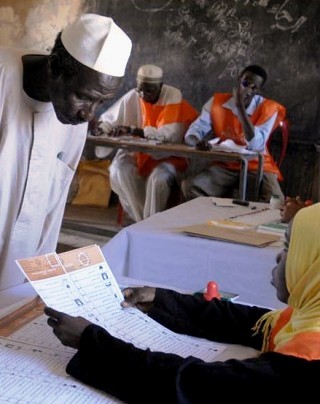|
Sudan Politics | Human rights Sudan govt dismisses rights violation claims
"We are not asking for favours. Our stand is that these reports should be balanced and credible", the Sudanese government spokesperson at her country's Nairobi embassy, Somaya Sadig, said in a rejoinder to the reports released by the human rights researchers.
She cautioned that the human rights groups should not influence the free choice of leaders since the Sudanese people were mature to vote for representatives of their own choice. Allegations that if President Omar al-Bashir is re-elected, it would have been a fraudulent exercise, were "both laughable and baseless" since the Sudanese people have every right to vote for a person of their choice whether or not he has been indicted by the ICC or not, Ms Sadig said in a no statement. The government, she noted, had guaranteed freedom of expression, association and assembly but it was unfortunate that the observations of these tenets had been ignored by the human rights groups. Ms Sadig dismissed as untrue claims by the Human Rights Watch that the Sudanese authorities throughout the country were failing to uphold standards agreed with the African Union in March. The US-based rights group in a thorough March report had concluded that "political repression and other rights violations ahead of the April general elections in Sudan threaten prospects for a free, fair, and credible vote." Human Rights Watch researcher Georgette Gagnon found an unfavourable situation both in North and South Sudan, concluding conditions in the country were "not yet conducive for a free, fair, and credible election." By Evans Kanini © afrol News - Create an e-mail alert for Sudan news - Create an e-mail alert for Politics news - Create an e-mail alert for Human rights news
On the Afrol News front page now
|
front page
| news
| countries
| archive
| currencies
| news alerts login
| about afrol News
| contact
| advertise
| español
©
afrol News.
Reproducing or buying afrol News' articles.
You can contact us at mail@afrol.com









